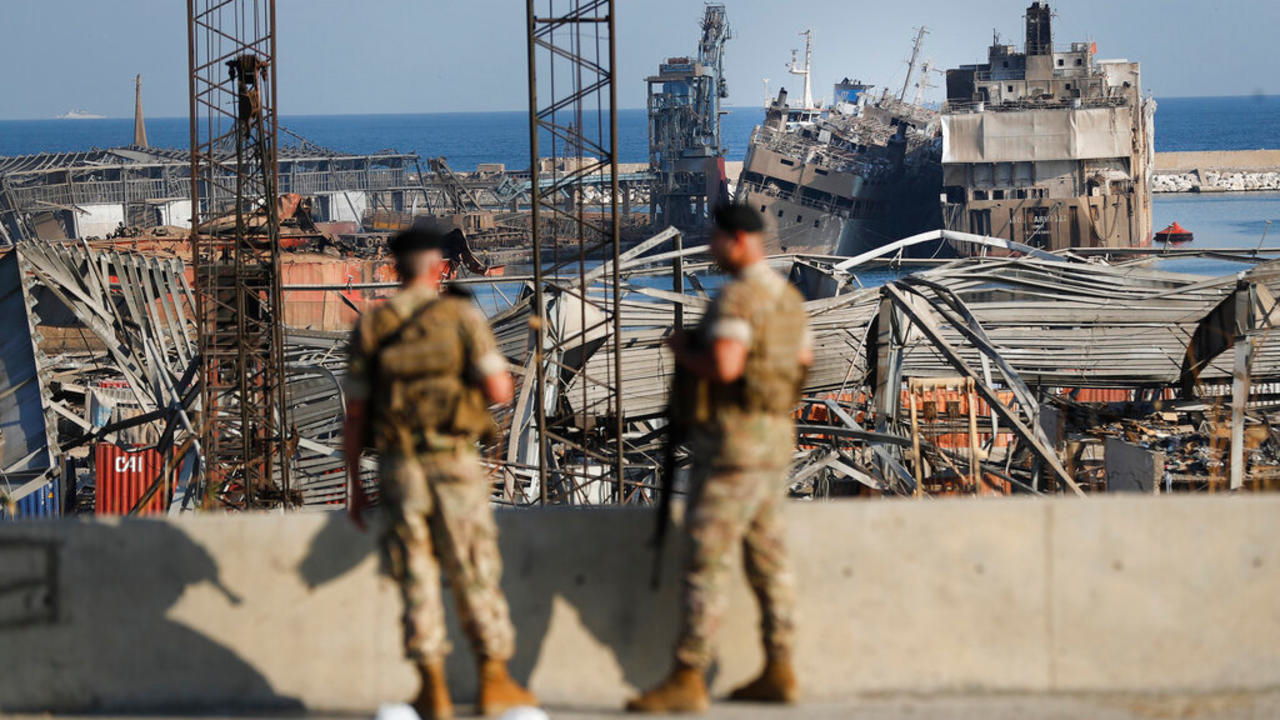
Issued on:
Thousands of tonnes of ammonium nitrate, believed to be responsible for the devastating explosion in Beirut on Tuesday, have been traced back by journalists to a Moldovan-flagged boat that was supposed to deliver the chemicals to Mozambique. An impecunious crew living as “hostages on a floating bomb” and repeated requests to the Lebanese authorities to shift the cargo, which went unheeded, are part of the cargo ships devastating story.
Advertising
Read more
The story that led to the tragic explosion in Beirut port on Tuesday began more than six years ago, 1,300 kilometres from the Lebanese capital. The Moldovan-flagged vessel Rhosus left the port of Batumi, Georgia, with 2,750 tonnes of ammonium nitrate on board. It never reached its intended destination, Mozambique, where the cargo was supposed to be sold to a factory manufacturing explosives for civilian use.
Thus, the ammonium nitrate – which is now seen as the cause of the disaster that killed at least 154 people and injured at least 5,000 – should never have ended up at Beirut port. But a combination of mismanagement of the ship, technical problems and legal complications kept the cargo there.
The Lebanese authorities have not yet released the conclusions of the official investigation into the tragedy. However, several publications – including The New York Times, CNN and Der Spiegel – were able to piece together a chronology of the facts.
Do you expect Putin to send special forces?
The Rhosus belonged to Igor Grechushkin, a Russian businessman living in Cyprus who had been paid a million dollars to transport ammonium nitrate to Mozambique, the ships captain Boris Prokoshev told The New York Times.
During a stopover in Greece, the boats Russian owner warned the crew that he lacked the funds to pay for salaries and maintenance costs on a journey through the Suez Canal. So he asked them to make their way to Beirut, where he intended to receive more money to transport extra cargo, Der Spiegel reported.
>> Beirut is destroyed, my heart is broken: Locals in despair over Lebanon blast
It was a difficult crossing through the eastern Mediterranean, explained Prokoshev, who is now retired. The ship was in a bad condition, he said, with a hole in the hull forcing the crew to regularly throw water out.
Contrary to its owners plans, the ship stayed in Beirut. During an inspection of the Rhosus, the Lebanese port authority said that its papers were not in order and that the boat was not in a good enough condition to sail, CNN noted. Meanwhile Igor Grechushkin dropped off the radar. The crew lacked the resources to pay for shipping costs.
Without the means to maintain the boat or even buy food, the crew were “hostages on a floating bomb”, to quote a prescient headline on maritime news website Fleetmon in July 2014.
Lebanon allowed six people to leave the country, keeping just four people in place, including the captain. Prokoshev said he contacted the Russian embassy. “Do you expect President Putin to send special forces to get you out?” one of his interlocutors reportedly said.
The judiciary never acted
In desperation, Prokoshev sold some of the ships fuel to provide lawyers to argue his case, he told radio station Echo Moscow on Wednesday. Eleven months after arriving in Beirut, the sailors finally won the legal right to go home, Charbel Dagher, one of the lawyers representing the crew, told specialist website ShipArrested in 2015.
The 2,750 tons of ammonium nitrate were then transferred to warehoRead More – Source
[contf] [contfnew]


